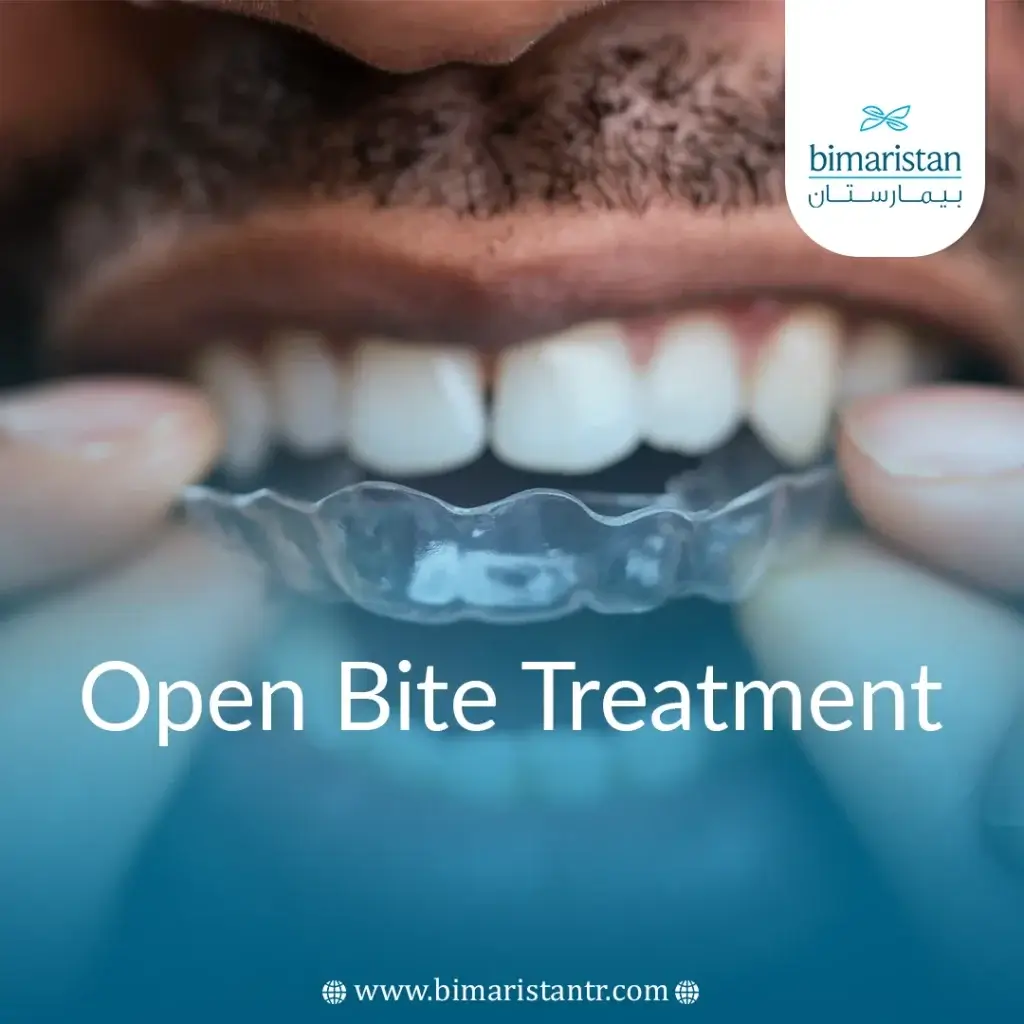Open bite treatment in Turkey has many corrective options; it protects against tooth erosion, pressure on the jaw joints, and other malocclusion issues.
An open bite is a dental malocclusion (misalignment) that occurs when the upper and lower teeth tilt outward and don’t touch each other properly when the mouth is closed.
Open bites types
Open bites can develop in either the front of the mouth (front teeth area) or the back of the mouth (back teeth area).
Anterior open bite
Anterior open bite occurs when the jaws’ lower and upper front teeth do not close together; it can occur on all the front or a few teeth.
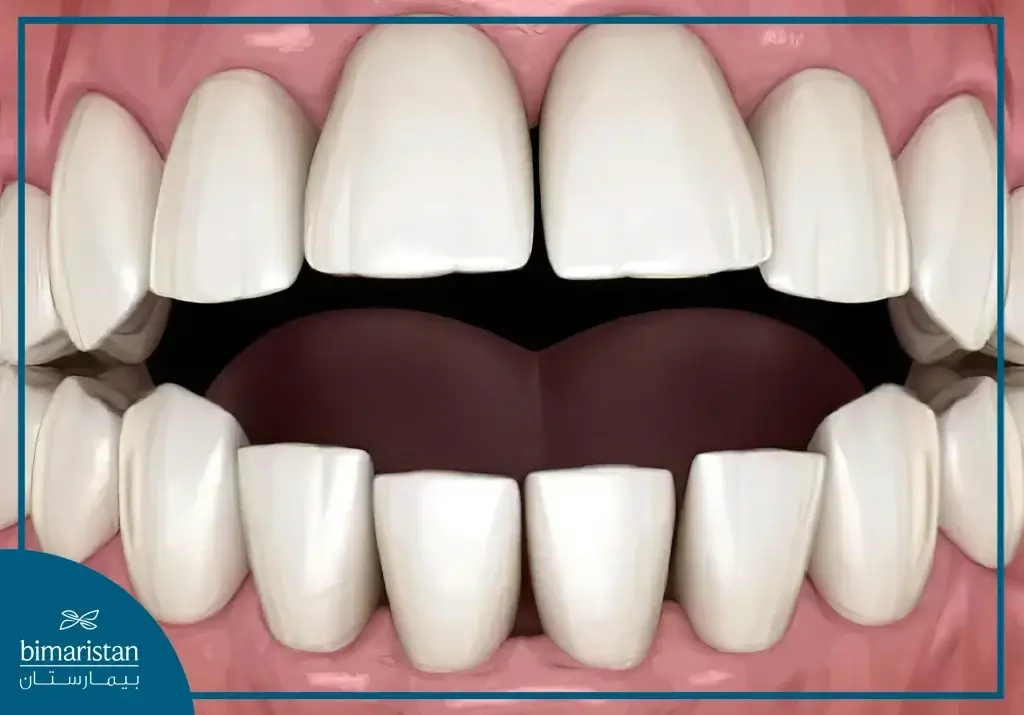
Treatment is usually necessary because some patients are unable or have trouble tearing food with their front teeth, and speaking can also be difficult for them.
Posterior open bite
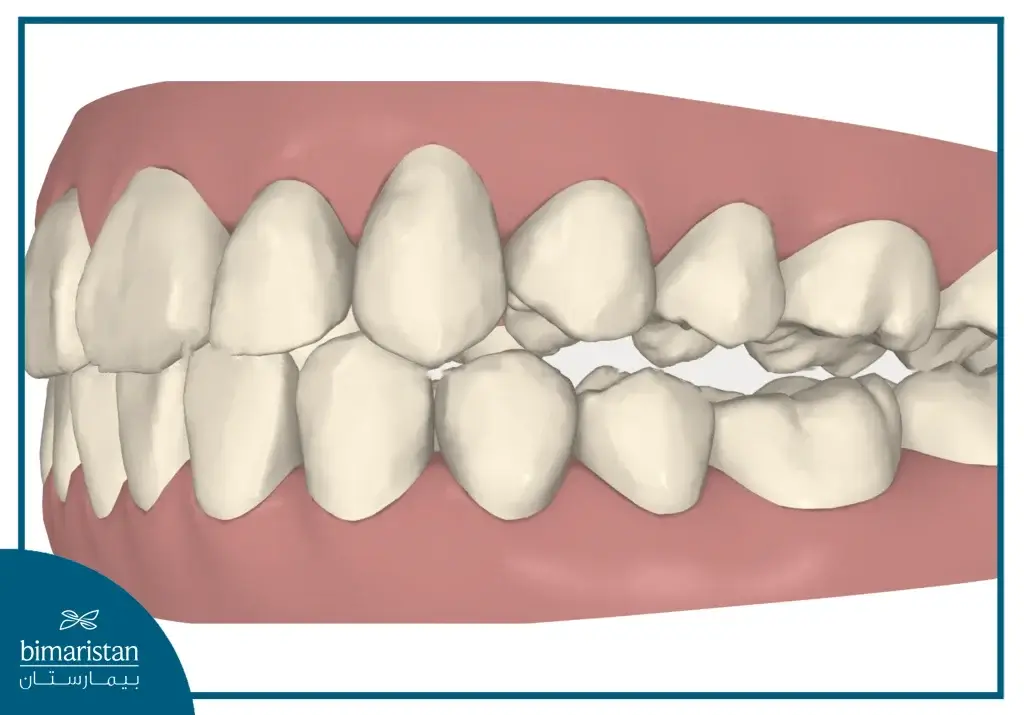
A posterior open bite is the opposite of an anterior open bite, occurring when the back teeth (molars and premolars) do not touch each other during the occlusion when chewing.
Causes of an open bite
An open bite is mainly caused by either structural issues in the jaw bones or dental issues due to poor oral habits; the most important causes of an open bite:
Skeletal issues
An open skeletal bite results from abnormal facial development. This irregular development may include the jaws growing apart instead of parallel to each other, often due to genetic inheritance.
Thumb or pacifier sucking
If the condition is not caused by genetics, it may be due to poor oral habits.
When someone sucks on a finger, lollipop, or other foreign object such as a pencil, it pushes their teeth or obstructs tooth eruption that can cause an open bite.
Push the tongue
An open bite can occur when a person speaks, swallows, and pushes their tongue between their upper and lower front teeth, creating gaps between the teeth.
Temporomandibular joint disorder TMD or TMJ
Joint issues and disorders can cause chronic jaw pain. Sometimes, people use their tongues to pull their teeth apart and reposition their jaw comfortably, which can cause an open bite.
Other causes include:
- Lower lip sucking
- Oral breathing
- Forward tongue position at rest (incorrect tongue position)
Why is open bite treatment necessary?
The side effects of an open bite range from aesthetic concerns to broken teeth:
Aesthetically pleasing
A person with an open bite may be unhappy with the appearance of their teeth, which appear to protrude.
Pronunciation
The condition can interfere with speech and articulation, and many people with an open bite develop a lisp.
Eating food
The person may not be able to bite and chew food properly.
Tooth erosion
They can cause erosion of the back teeth, which can often cause discomfort and other dental problems, including broken teeth.
If you experience any of these side effects from an open bite, make an appointment with your orthodontist to discuss treatment options.
Open bite treatment options
Open bite treatment plans for protruding teeth may include the following options:
High Positioning Pull-Out Headgear
The puller headgear is attached to the top of the head, the back of the head, and the upper jaw.
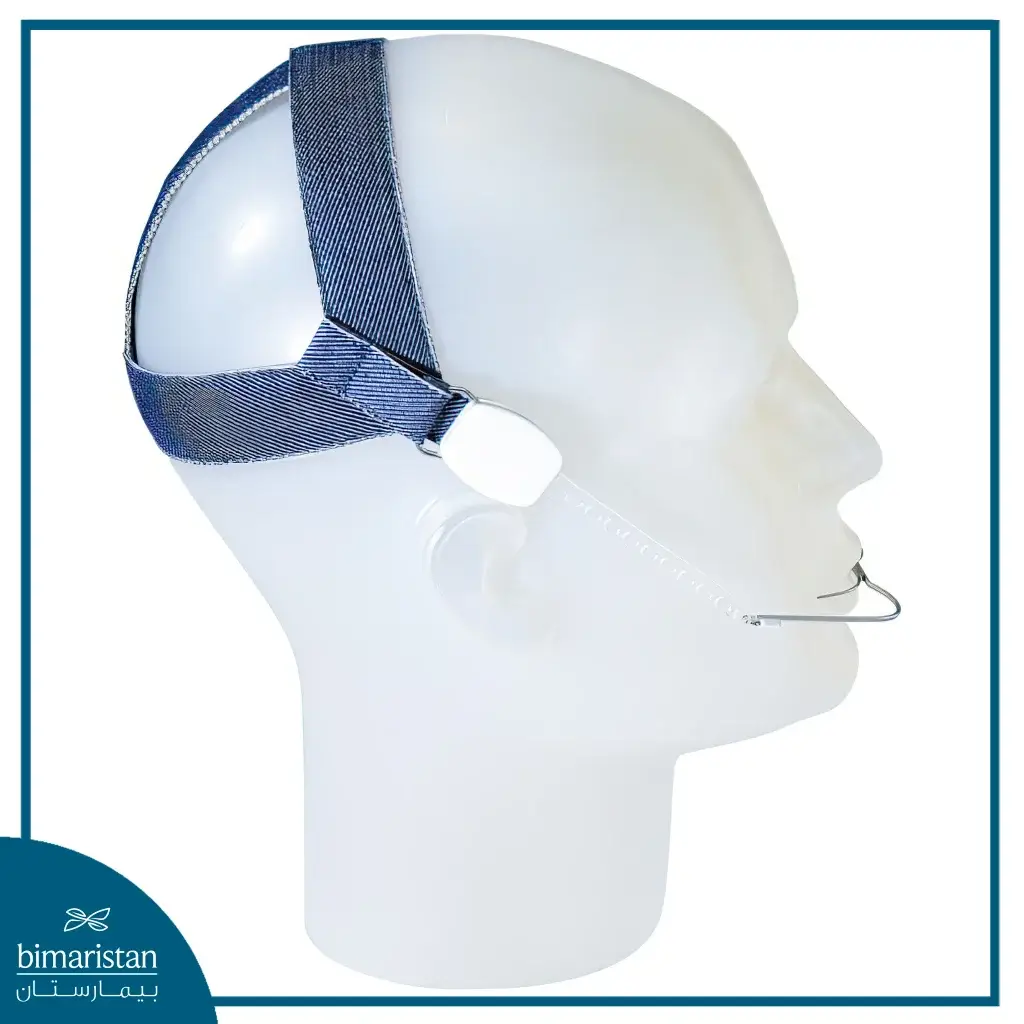
The appliance controls jaw growth and improves tooth alignment. Headgear is used in conjunction with braces and orthodontic aligners.
Traditional or clear Invisalign
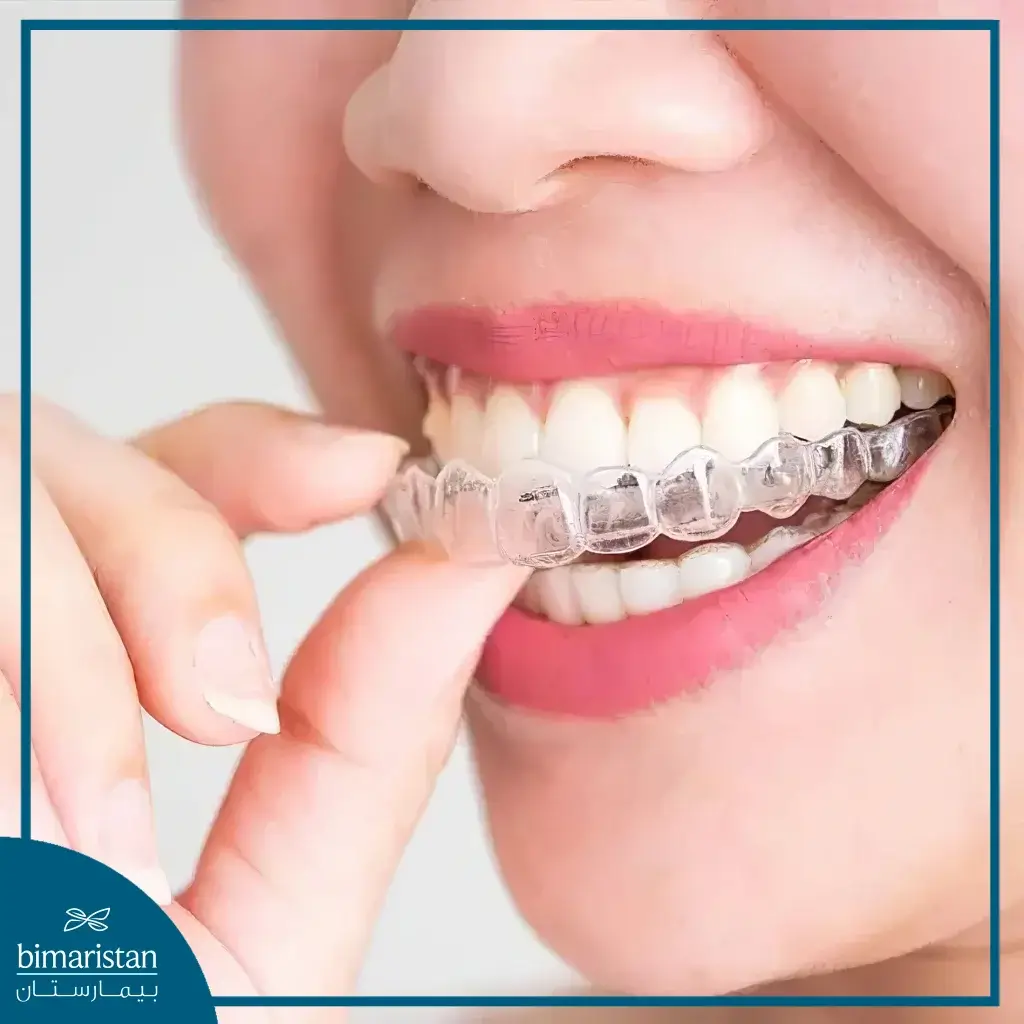
Transparent braces effectively treat only minor anterior open bites, so orthodontic treatment is less common.
Vertical chin restraint
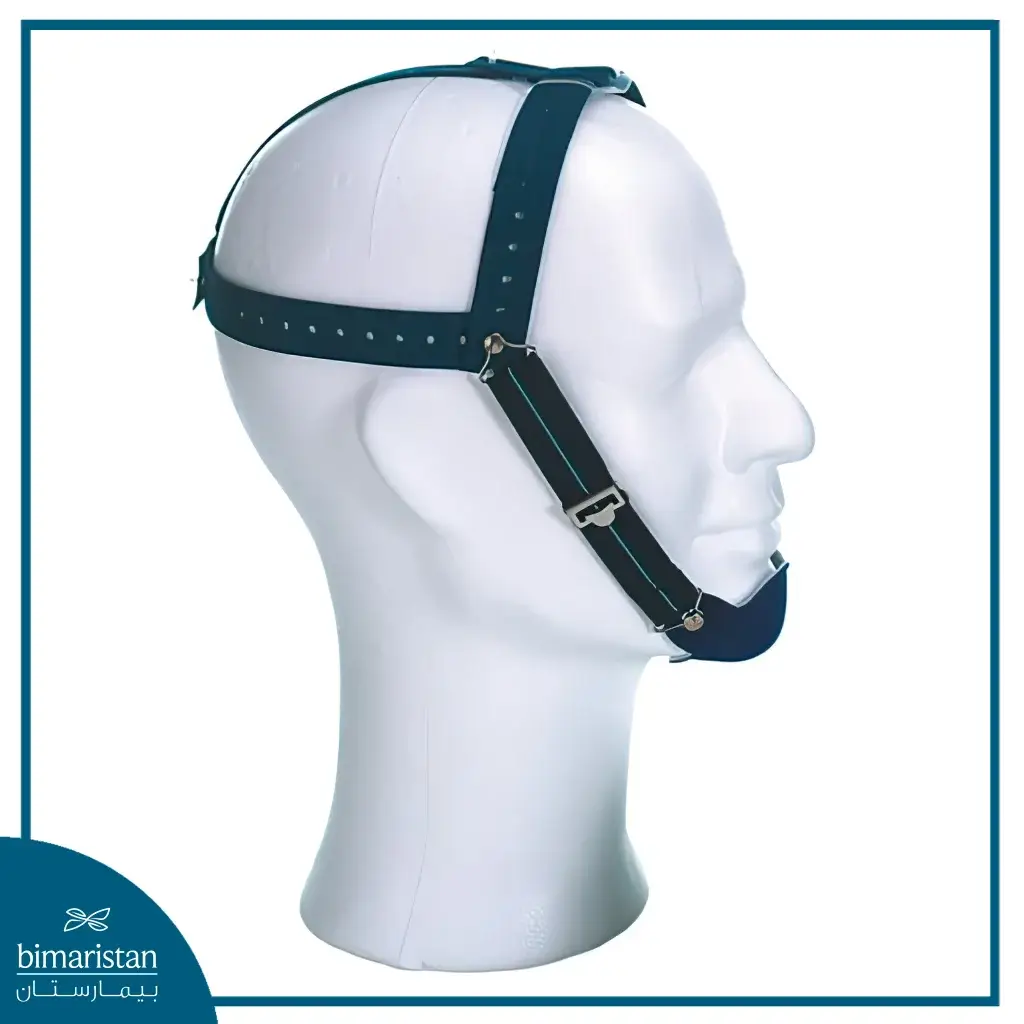
It is a common orthodontic device used to correct and treat an open bite. The device controls the growth of the lower face and prevents the chin from growing backward or downwards.
Tongue depressor
Tongue restraint devices are important because they prevent the tongue from pushing against the front teeth, which can cause the bite to open and the upper front teeth to protrude.
Bite lifter
Open bite treatment involves placing an appliance on the two back molars in the lower jaw on both sides. This appliance gradually moves the front teeth back over time, eliminating the space between the upper and lower teeth.
Reconstructive surgery
Adults with open bites caused by structural issues usually need surgery to develop their jaw and teeth fully.
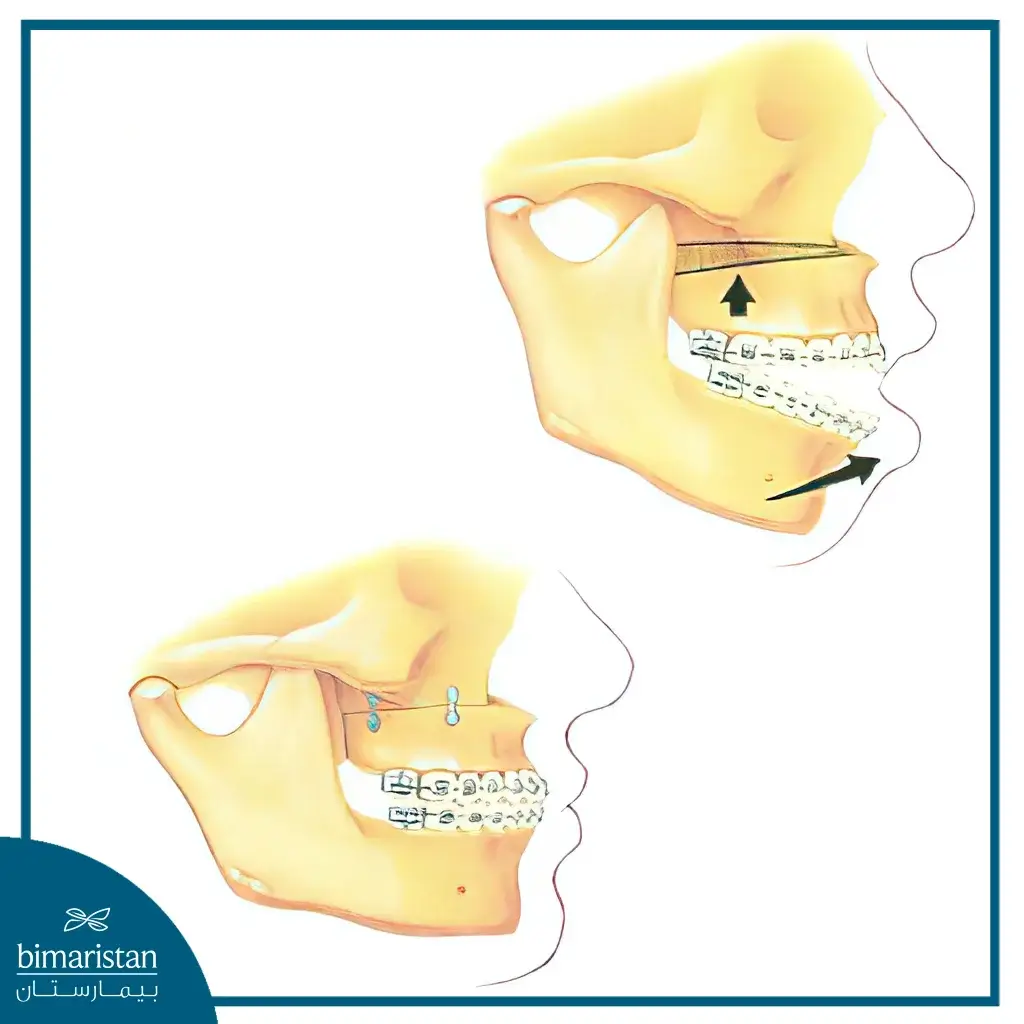
Teenagers may also need orthognathic surgery if their permanent teeth have fully grown and their jaw has fully developed. During the surgery, the oral surgeon places the patient’s upper and lower jaws in the correct position and then uses plates and screws to hold the jaws in place.
Which of the above options is best suited to treat my open bite?
While many options exist for treating an open bite, choosing the right method depends on several factors. Your dentist will make appropriate recommendations based on your age and whether you have permanent or temporary teeth:
- Behavior modification
- Mechanical open bite treatment such as traditional or clear braces
- Surgery
When the condition occurs in early childhood while most teeth are still temporary, it can disappear on its own after a while when the child stops practicing the bad habit that caused it, such as finger sucking or pacifier sucking, for example.
Suppose the open bite occurs when the baby teeth are replacing the permanent ones but are not fully developed. In that case, behavior modification may be the best course of action, and lingual thrust therapy may be needed.
If the permanent teeth are growing in the same pattern as the open bite, the specialist may recommend using customized braces to pull the teeth back.
Orthodontic involvement and behavior modification are suggested for adults whose teeth have completely grown out. Still, for severe cases, treatments may not be sufficient without jaw and facial surgery to reposition the jaw and stabilize it with plates and screws.
Summary
Open bite treatment can be done at any age, though it’s simpler and less painful when permanent teeth haven’t fully erupted.
Children with open bites should have their teeth evaluated when they still have some baby teeth around the age of 7. This is the right age to start certain procedures, including behavior modification, to avoid open bites as these children grow.
For adults, dealing with open bite is more complicated and may require behavioral therapy in conjunction with mechanical (orthodontic) treatment or may require surgical treatment.
If you want to treat your condition, do not hesitate to contact Bimaristan Medical Center. We help you secure the appropriate treatment and high-quality service in Turkey’s most modern hospitals and medical centers and accompany you step by step toward recovery.
Sources:
